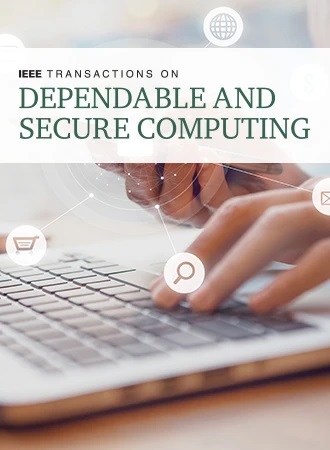基于可验证扰动的鲁棒隐私保护联邦学习
IF 7.5
2区 计算机科学
Q1 COMPUTER SCIENCE, HARDWARE & ARCHITECTURE
IEEE Transactions on Dependable and Secure Computing
Pub Date : 2023-11-01
DOI:10.1109/tdsc.2023.3239007
引用次数: 1
摘要
本文章由计算机程序翻译,如有差异,请以英文原文为准。
PILE: Robust Privacy-Preserving Federated Learning via Verifiable Perturbations
Federated learning (FL) protects training data in clients by collaboratively training local machine learning models of clients for a global model, instead of directly feeding the training data to the server. However, existing studies show that FL is vulnerable to various attacks, resulting in training data leakage or interfering with the model training. Specifically, an adversary can analyze local gradients and the global model to infer clients’ data, and poison local gradients to generate an inaccurate global model. It is extremely challenging to guarantee strong privacy protection of training data while ensuring the robustness of model training. None of the existing studies can achieve the goal. In this paper, we propose a robust privacy-preserving federated learning framework (PILE), which protects the privacy of local gradients and global models, while ensuring their correctness by gradient verification where the server verifies the computation process of local gradients. In PILE, we develop a verifiable perturbation scheme that makes confidential local gradients verifiable for gradient verification. In particular, we build two building blocks of zero-knowledge proofs for the gradient verification without revealing both local gradients and global models. We perform rigorous theoretical analysis that proves the security of PILE and evaluate PILE on both passive and active membership inference attacks. The experiment results show that the attack accuracy under PILE is between $[50.3\%,50.9\%]$ [ 50 . 3 % , 50 . 9 % ] $\pm 0.3\%$ ± 0 . 3 %
求助全文
通过发布文献求助,成功后即可免费获取论文全文。
去求助
来源期刊

IEEE Transactions on Dependable and Secure Computing
工程技术-计算机:软件工程
CiteScore
11.20
自引率
5.50%
发文量
354
审稿时长
9 months
期刊介绍:
The "IEEE Transactions on Dependable and Secure Computing (TDSC)" is a prestigious journal that publishes high-quality, peer-reviewed research in the field of computer science, specifically targeting the development of dependable and secure computing systems and networks. This journal is dedicated to exploring the fundamental principles, methodologies, and mechanisms that enable the design, modeling, and evaluation of systems that meet the required levels of reliability, security, and performance.
The scope of TDSC includes research on measurement, modeling, and simulation techniques that contribute to the understanding and improvement of system performance under various constraints. It also covers the foundations necessary for the joint evaluation, verification, and design of systems that balance performance, security, and dependability.
By publishing archival research results, TDSC aims to provide a valuable resource for researchers, engineers, and practitioners working in the areas of cybersecurity, fault tolerance, and system reliability. The journal's focus on cutting-edge research ensures that it remains at the forefront of advancements in the field, promoting the development of technologies that are critical for the functioning of modern, complex systems.
 求助内容:
求助内容: 应助结果提醒方式:
应助结果提醒方式:


